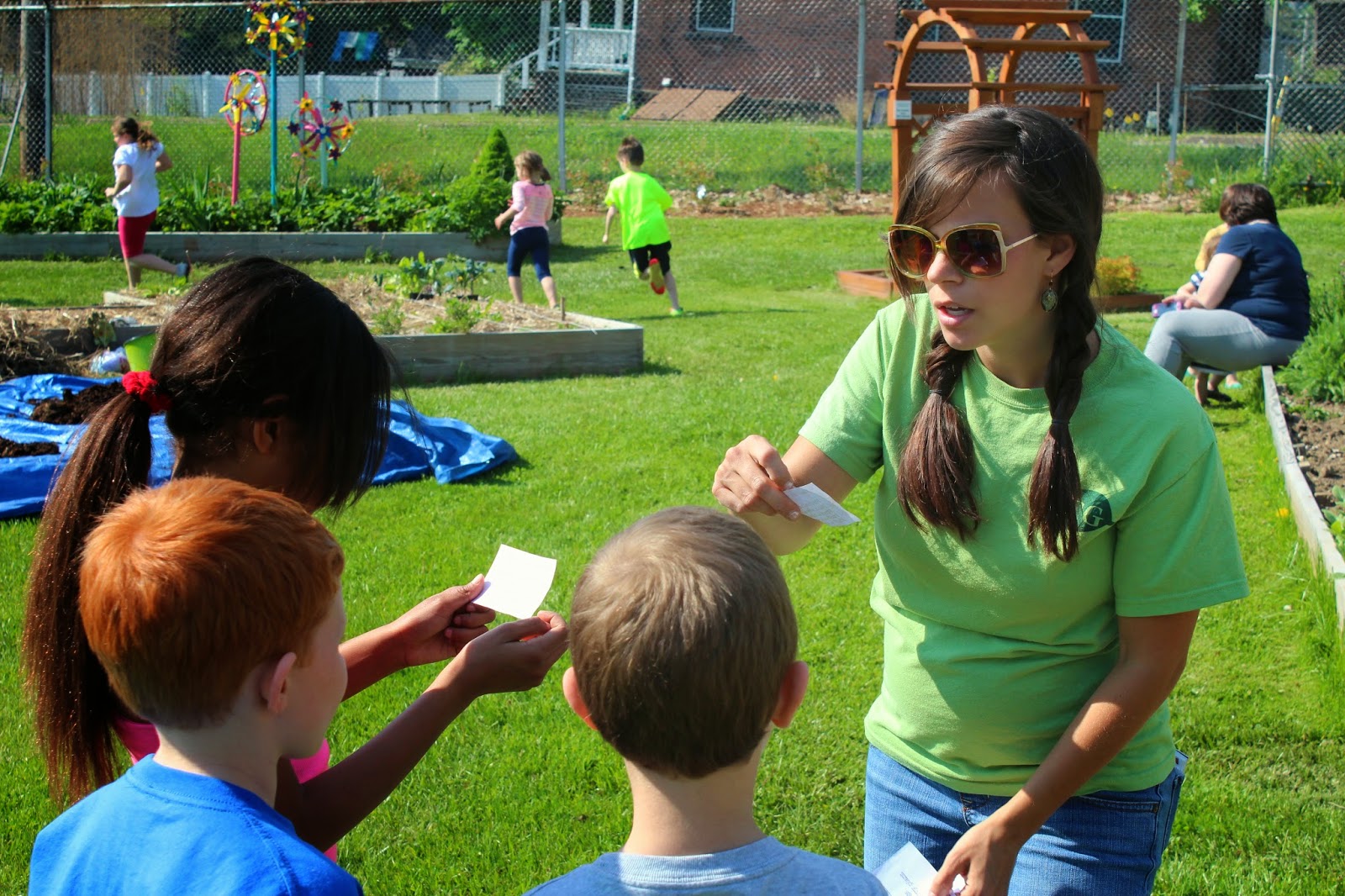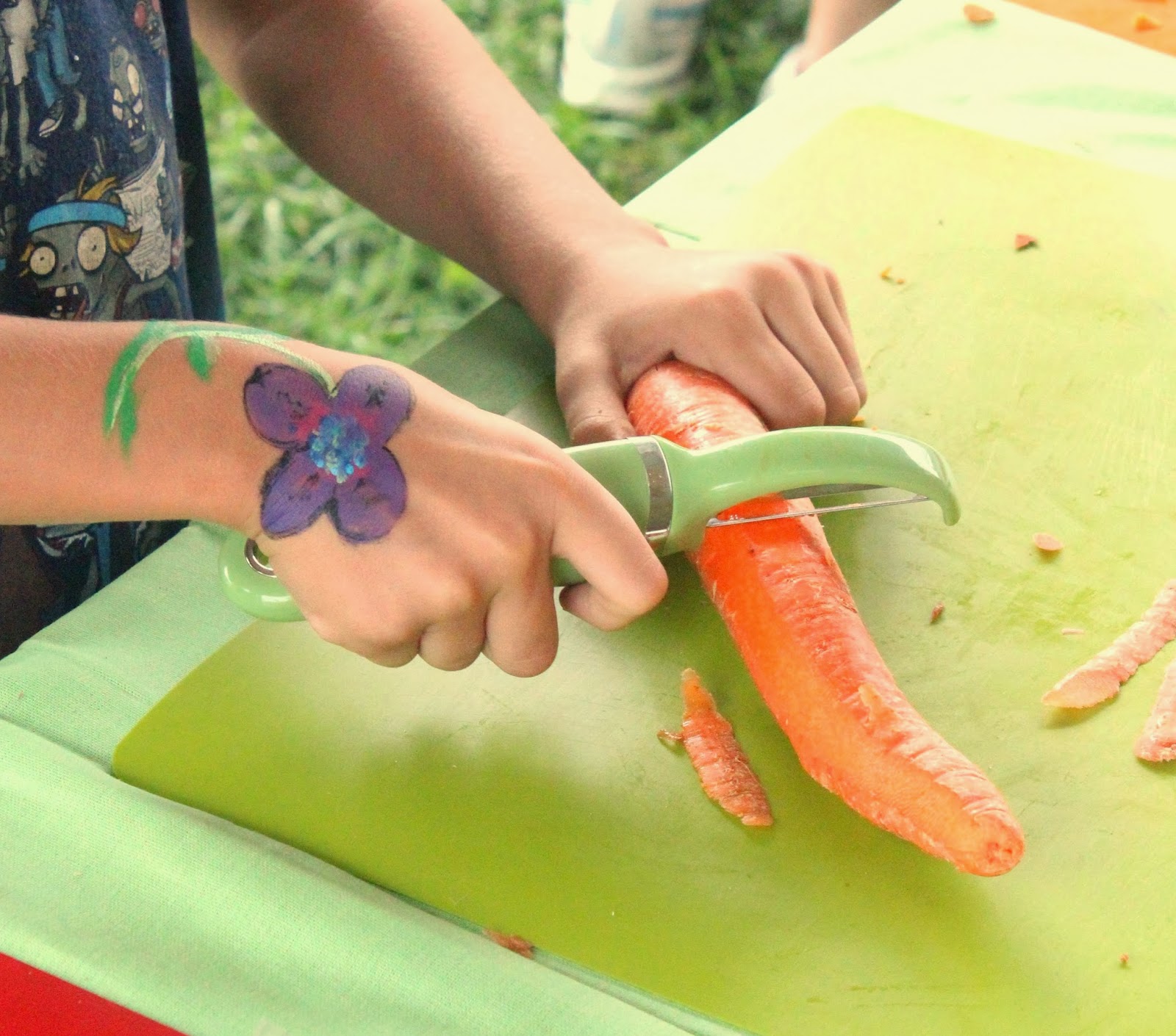Fifty schoolchildren in the K Klub of Horace Mann Elementary School visited the community garden on May 19 for an afternoon of education, exercise, and fun. They walked several blocks from the school to the community garden. The borough police blocked traffic to ensure a safe street crossing for the children.
In early May, students from Indiana University of Pennsylvania came to the community garden
to learn how to grow their own vegetables.
With guidance from an experienced gardener, they planted their own onions, broccoli, celery, and lettuces. At the community garden, Master Gardeners from Penn State Extension can teach people how to grow foods and flowers.
The students also sowed carrot and spinach seeds. They learned that seeds of various vegetables each have
specific planting requirements. Growing information is found on the seed packets.
Planting seeds...
...and then lightly tamping down the soil.
In addition to planting seeds, students planted several varieties of lettuces, celery, and broccoli transplants. They learned that certain crops need cool weather to grow well but other crops require warm weather. When the lettuces are ready to harvest, the weather will be warm enough to plant heat-loving vegetables (tomatoes, okra, peppers, and beans) where the lettuces once grew.
A nutritionist and instructor at IUP's Food & Nutrition Department, Nicole Dan-Payne, along with Jodie Seybold (also a nutritionist and instructor at IUP) gave a talk and demonstration about herbs and how they can be used in recipes. She also discussed the nutritional value of herbs and cultivating tips.
Several times during the growing season, groups of students visit the community garden for hands-on learning activities. Students from the Horace Mann Elementary School will visit and participate in fun learning activities such as harvesting vegetables and fruits, looking for worms in the worm farm, and bug hunting. Their teachers are excited at the enthusiasm of their students. From the seeds they saved, the students grew seedlings in their classrooms. One parent said her children will eat vegetables now since their class trip to the community garden; during that visit, they ate the vegetables they picked. Now that family grows vegetables at home.

Social events at the community garden always have educational opportunities. For instance, at the Taste and Tour event in July 2013, visitors could learn about edible, nutritious weeds, how to build a rainwater collection system, how to make a worm farm, herb uses and cultivation, nutrional values of foods, and much more.












































No comments:
Post a Comment